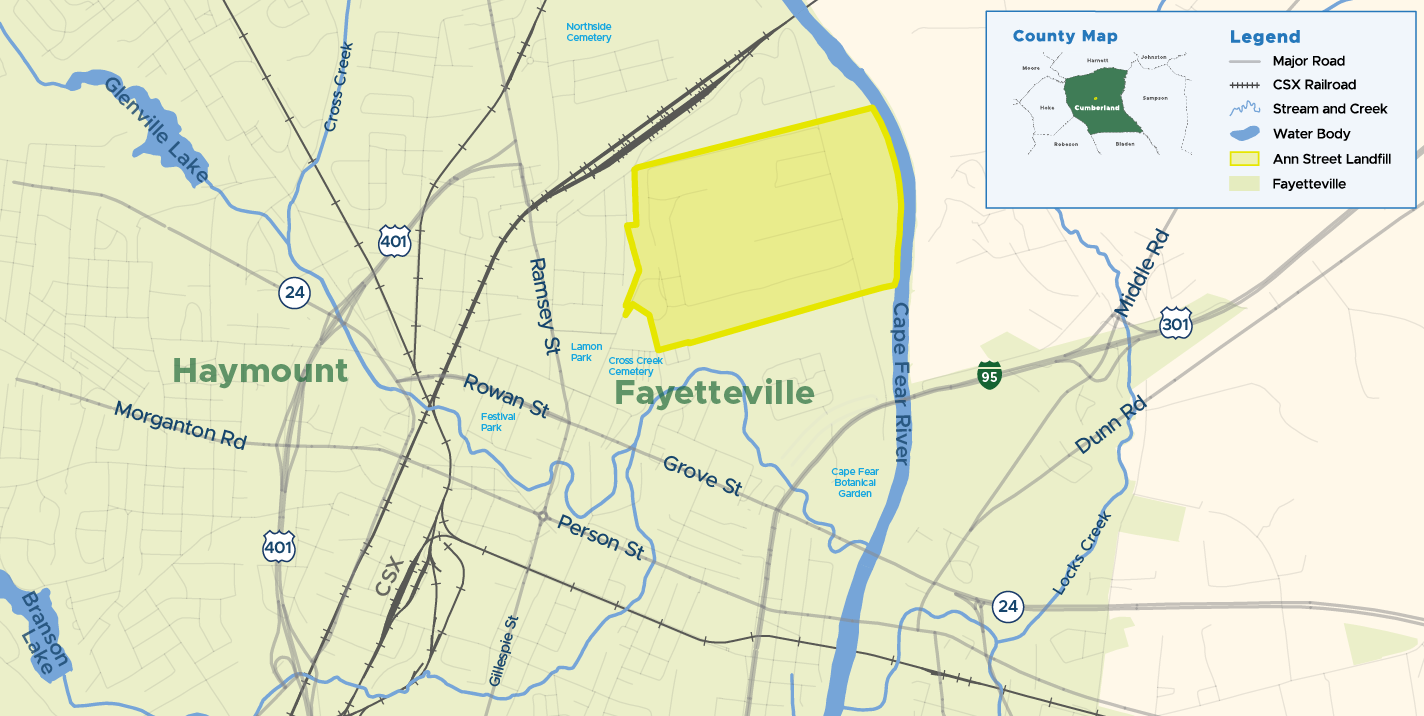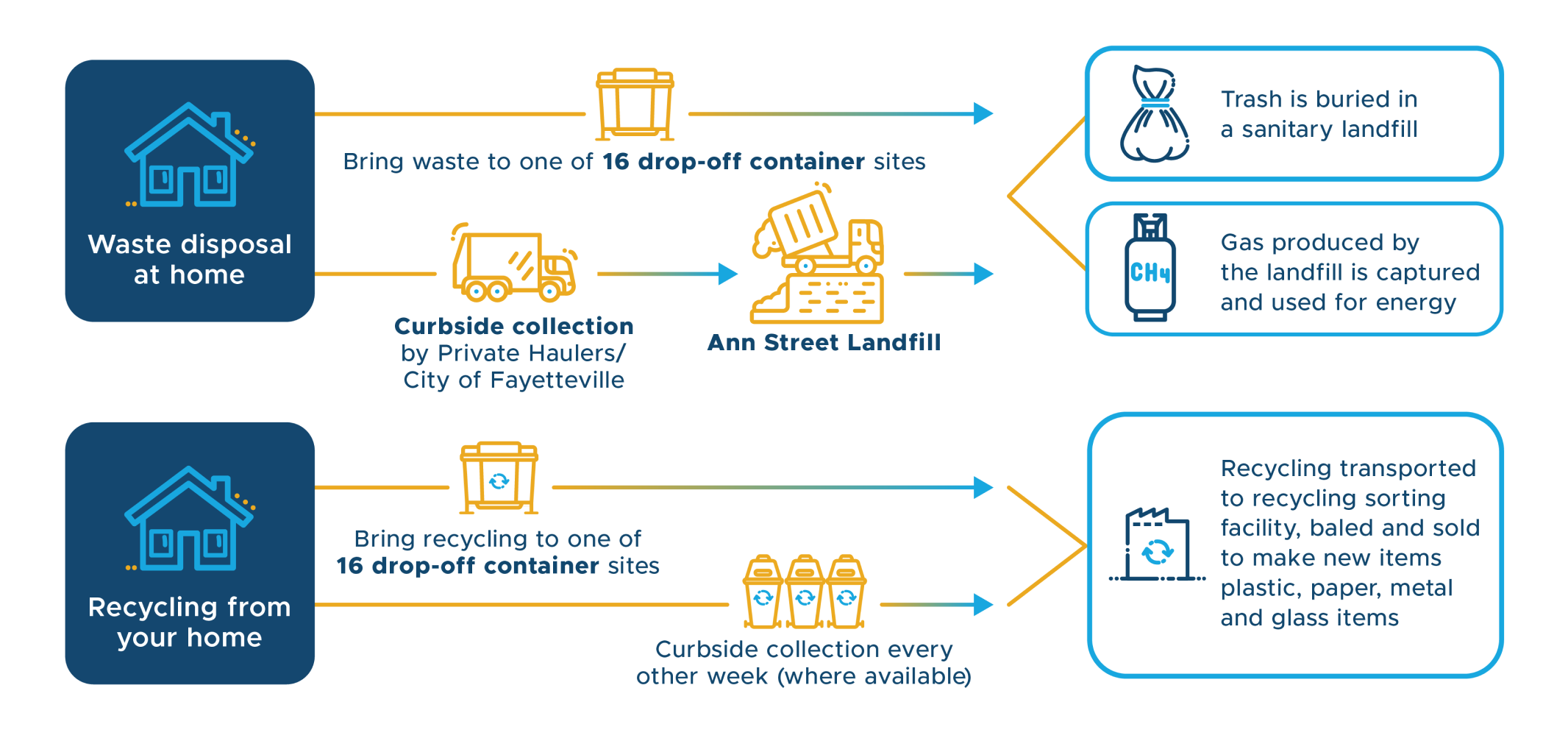 Welcome, Neighbors!
Welcome, Neighbors!
Welcome to Cumberland County’s virtual public meeting about the future of the Ann Street Landfill.
How to Participate
- Please review the slides to learn more about the future of Ann Street Landfill.
- To join our mailing list please fill out the details in the form below.
How to Navigate This Site
- Use the navigation bar at the left of your screen to revisit any part of the meeting.
Why We're Here
The Problem
Thousands of city and county residents and businesses rely on the Cumberland County Solid Waste Department and Ann Street Landfill for waste disposal every day. The landfill, which has operated at this site since 1980, will reach capacity in just seven years. Before that time, the community will need to plan for waste disposal beyond 2030.
Where We're Going
The Solution
-
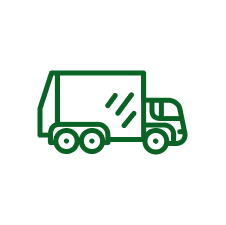
Stage 1 Construct a Transfer Station
Waste will ship outside the county via truck to landfills in other communities.
-

Stage 2 Expand the Current Landfill
The current landfill will be expanded onto county property adjoining the Ann Street Landfill to the west. Most of this property is a closed landfill.
-

Stage 3 Use the Transfer Station During Landfill Expansion
This will ease the burden on the current landfill while the county permits and constructs the landfill expansion to the west.
-
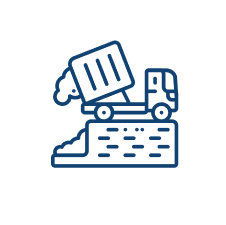
Stage 4 Transition to Using the Expanded Landfill as Each Section Is Ready
The county will gradually decrease use of the transfer station while increasing use of the expansion area.

Our Commitment
Environmental Justice
The permitting process for the Ann Street Landfill expansion includes an environmental justice review for the Ann Street site.
This review is designed to avoid, minimize, or mitigate disproportionately high and adverse human health and environmental effects on minority populations and low-income populations. As our valued neighbors, we are inviting you to join us to discuss plans for the future of Ann Street Landfill and share your feedback for how we can be a better neighbor.
The draft Environmental Justice report is available on the County website.

What We Do
What is a Landfill?
Grassy hills and earth surrounded by a landscape of trees, may not sound like what most people think of as a landfill. Landfills are carefully designed, constructed, and operated to fully contain waste in an efficient and safe manner.

The Ann Street Landfill
- Balefill Area - Former area for baled waste materials. Proposed location for the western expansion of the lined MSW landfill.
- Landfill Gas Processing & Control Flare - Blowers to vacuum gas from projects for Cargill and others, in accordance with regulatory requirements.
- MSW Landfill
- Permitted Soil Borrow Area
- Closed Landfill Area
- Leachate Lagoon
- C&D Landfill - Used for demolition waste
- New Truck Scales
- New Container Site
- Administration Office
- Recycling Center
Clockwise North to South from CSX Railyard
A Deeper Look
- Turf-Reinforcement Matting on slideslopes only
- Six inch vegetative layer
- 18 inch Protective soil layer
- Geocomposite Drainage net
- 40 mil Textured LLDPE Geomembrane
- 12 inch min. Intermediate cover layer
- Refuse
- Protective Cover (Sand) Layer
- Geocomposite Drainage Net
- 60 mil HDPE Textured Liner
- 24 foot min. compacted clay layer
- Compacted Subgrade
From top to bottom
Additional Services
-

16 collection sites for household garbage, recycling and yard waste
-

Receipt of used oil, electronics, tires, antifreeze, lead acid batteries and other wastes at the collection sites
-

A household hazardous waste collection center
-

Telephone hotline
-

Construction & demolition recycling (clean wood, brick, concrete, asphalt and dirt)
-

Mulching of yard waste, pallets, and clean wood
-

Special events (landfill tours, e-waste events, etc.)
-

Methane Gas collection and processing used by Cargill
Environmental Responsibility
What we are doing now
- Odor Control
- Ground Water Quality Monitoring
- Landfill Gas to Beneficial Reuse
- Composting
- Drop-off Recycling
- Leachate Collection and Discharge to PWC for Treatment
- Electronic Waste Collection
- Household Hazardous Waste Collection
Proposed
- Leachate PFAS Treatment
- Stormwater Improvements
The Future of Ann Street Landfill
Building a Transfer Station
Construct a transfer station at the Ann Street Landfill site to collect trash at Ann Street, then load it onto trucks to ship it long distance to a landfill in another community. The county’s goal is to have this transfer station up and running by mid-summer of 2024.
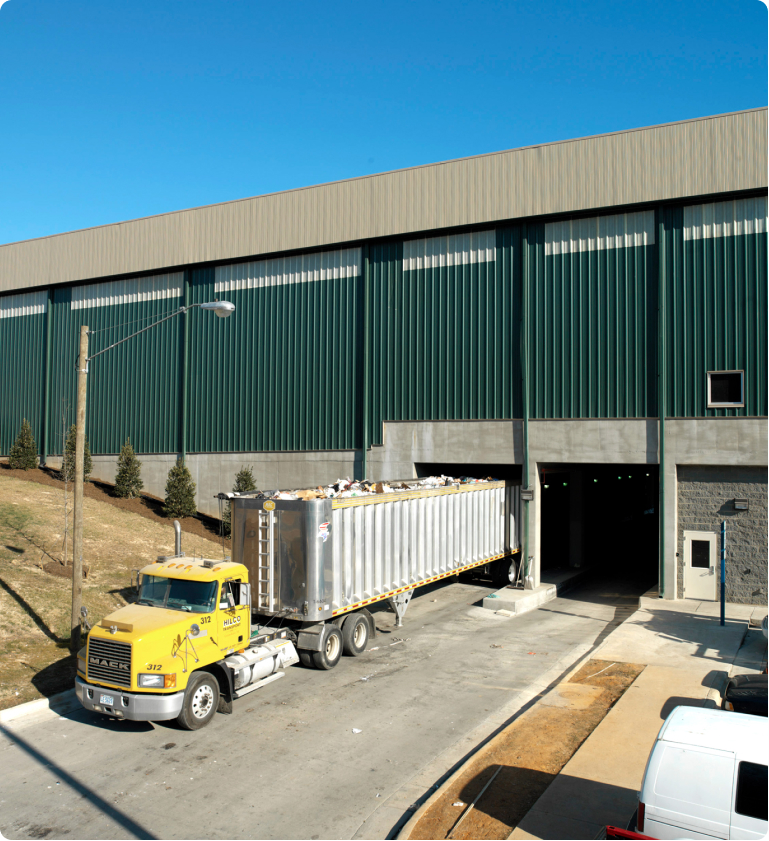
Expanding the Existing Landfill
The landfill would be expanded to the west over the existing county closed landfill property containing baled waste.This option would provide at least an additional 20 years of capacity, extending the life of the landfill until 2050. Further analysis is ongoing to determine if it is practical and what the costs are for implementation.
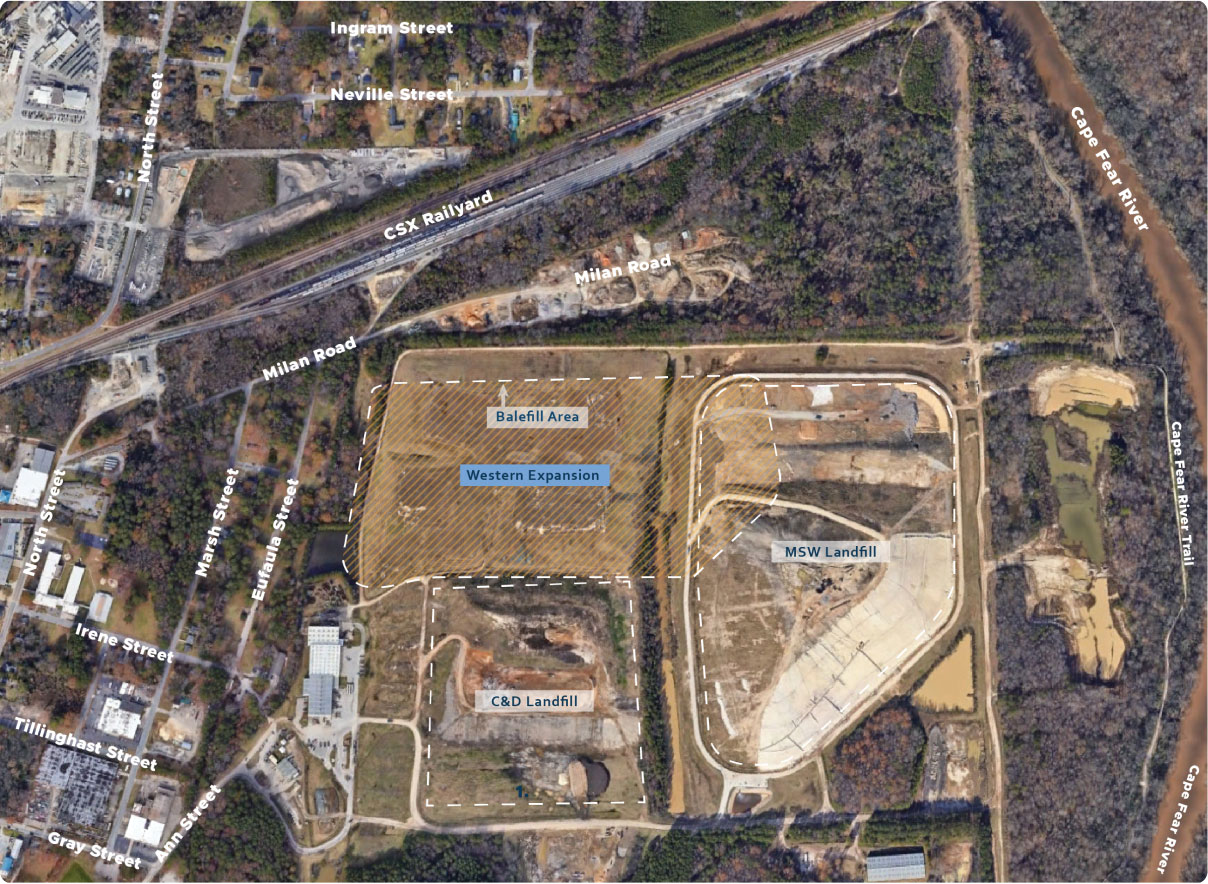
What It Will Mean
What will expansion mean?
-

Long-Term Service
Adds at least an additional 20 years of capacity
-

Environmental Responsibility
Minimal environmental impacts by utilizing the existing space and infrastructure. Remediation of former unlined site, removing potential environmental impacts
-

Odor Control
Keeping being a good neighbor front of mind. Landfill mining is not anticipated to generate odors off-site
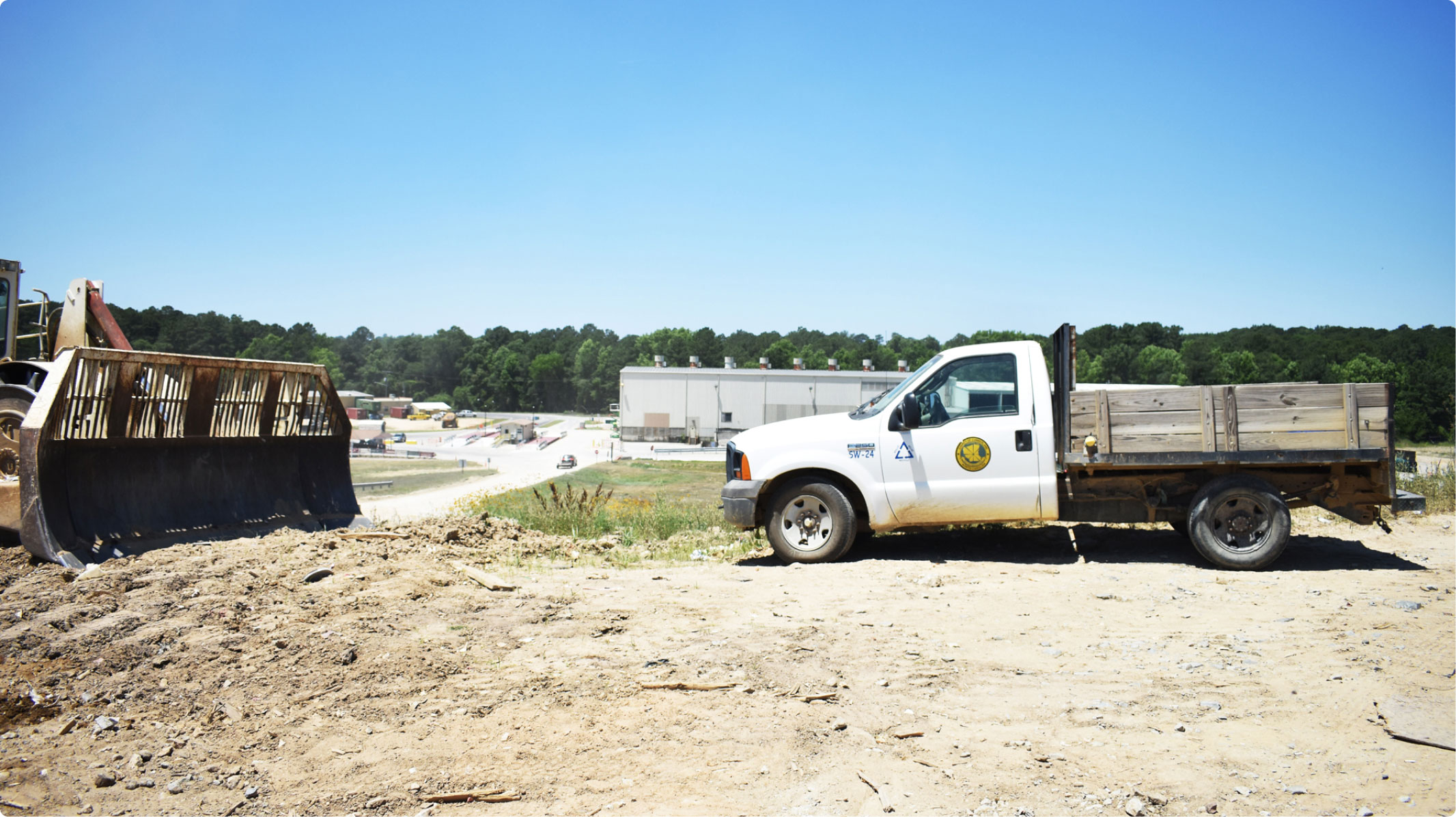
Find Your Property
We aim to be good neighbors to the surrounding community. Use the map below to see how close your home or business is to the Ann Street Facility. Understanding how our current operations impact neighbors will tell us how we can be more user friendly, minimize impacts, and enhance our operations to be a better neighbor.
Next Steps
Project Schedule
- 2023 to 2024 - Environmental Studies, Preliminary Design and Permitting
- Late 2023 - Western Expansion Pilot Study
- 2024 - Anticipated completion and initial operation of Transfer Station
- 2027 - Anticipated completion of first section of Western Expansion
- 2030 - Reduce use of transfer station
- 2030/2045 - Additional Sections of Western Expansion Completed over 2030 - 2045
- 2050 - Extended lifespan of landfill
- Community Engagement is ongoing throughout
Being a Better Neighbor
Your Voice will help us build a Better Project.
Understanding how our current operations impact neighbors will tell us how we can be more user-friendly, minimize impacts, and enhance our operations to be better neighbors.
Environmental justice is a critical component of this project and the communities directly surrounding the landfill will be key partners as we look toward the future of the Ann Street landfill.

We Want to Hear from You!
Some things we want to hear about:
- Aesthetic Improvements
- Connection to Cape Fear River Trail
- How to Minimize Impacts
- Post-Closure Considerations
